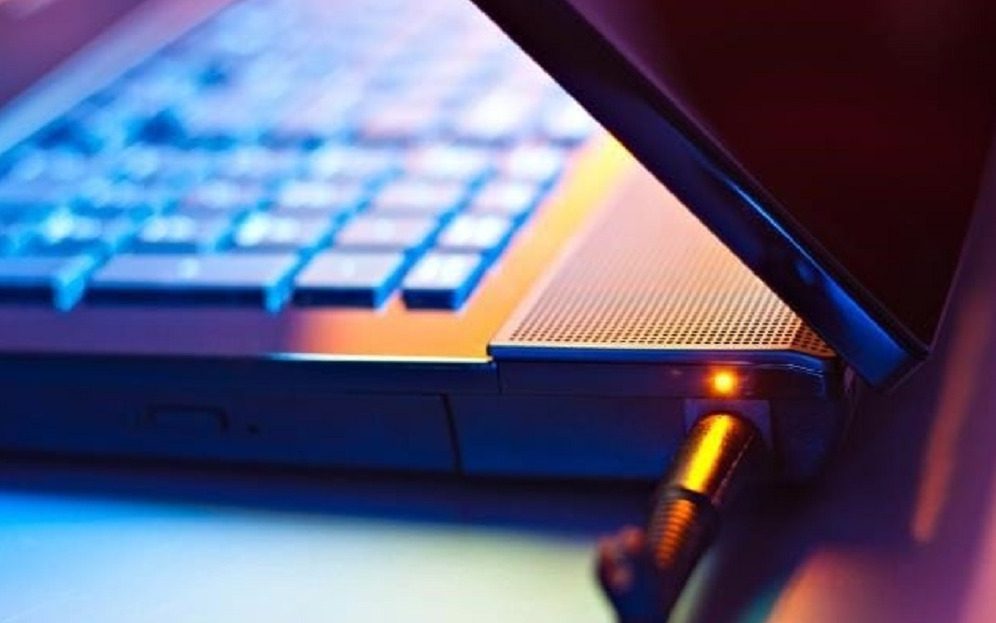Laptops have some relatively hefty batteries due to the amount of powerful hardware in them. Technology is getting better and where battery life used to be atrocious, we’re now seeing batteries that can last much longer than an eight-hour workday. Just look at something like Samsung’s Galaxy Book S, which offers over 11 hours of life on a single charge.
nope
A fast discharge will not damage a modern battery.
However, leaving your laptop plugged in all the time can decrease battery life.
If you’ve ever heard that your laptop can overcharge if you leave it plugged in, that doesn’t apply to lithium-ion devices, but it does to older types of batteries.
If you want to know everything about whether leaving your laptop plugged in overnight is a bad thing then you’ve come to the right place.
The following statements apply to both battery types (at least as far as modern laptops are concerned):
- A battery cannot be overcharged. There is no risk of overcharging the battery if you leave it plugged in all the time, even 24/7. Once it reaches 100 percent, it stops charging and won’t start again until the voltage drops below a certain level.
- If you completely discharge a battery, it will be damaged. If the battery is completely discharged over a longer period of time, the battery can become deeply discharged. It can do this permanently: you may not have the ability to pay for this again.
Types of batteries used in laptops
- lithium-ion
- nickel-cadmium
- nickel metal hydride
Lithium Ion Battery Cells
This is the newest form of battery cell used in traditional laptops and is often preferred over nickel-based batteries for its high storage capacity.
These are now commonly used in almost all forms of electronics that require battery components as they are extremely safe and if your laptop has lithium-ion battery cells you can rest assured that you can leave your laptop overnight without worrying about it having to worry about a fire. Danger.
Nickel Cadmium Batteries
Nickel-cadmium is fairly rare today but is generally used in regions where temperature readings are extremely variable, e.g. H. too hot or too cold. Nickel-cadmium-based batteries glow brightly in extreme temperatures and tend to have longer lifespans compared to the last on the list.
Due to the memory effect, however, they are considered a second choice to a lithium-ion battery, since their memory function means that they have to be completely discharged to complete a cycle; otherwise, the cycle is wasted, resulting in drastically reduced battery cycle life.
This reduction in lifespan meant the battery would quickly run out and then had to invest in new ones, which could be an expensive alternative.
Nickel metal hydride
These are the ones that have a lower storage density than lithium-ion but are significantly safer than them. In addition, these batteries do not have a memory effect, but they have a shorter lifespan than Nickel Cardio, and they are significantly heavier than the batteries mentioned above.
Things that damage lithium batteries
The truth about lithium batteries is that they are inherently unstable. They lose capacity from the moment they are produced, and numerous factors are accelerating their decline. These include:
charge/discharge cycles. Each battery can only be charged and discharged a limited number of times.
tension level. The higher the state of charge (measured in volts per cell), the shorter the battery life.
High temperature, more than 30 degrees Celsius. This can lead to irreparable damage.
How do I remove the battery from a laptop?
They usually have one or two slide-locking mechanisms. The sliders are marked with lock and unlock icons, usually resembling a padlock. To remove the battery, slide all latches into the open position. I should go free
Align it so the plastic tabs or sliders do not catch, and slide it into place to reattach the battery. It should click when fully seated and the slide latches will snap into place. If you can find the mechanisms listed, contact your manufacturer.
You should have an instruction manual online that will show you the details of how to remove the battery for your model.
I know, can you leave a battery plugged in all the time?
It might seem like we’ve got that covered, but it’s possible to dig a little deeper. We have found that trickle charging fails when the battery is fully charged.
We’ve also covered how trickle charging causes the battery to draw current from the charger, microscopically shortening its lifespan. That should mean leaving it plugged in all the time is a bad idea, right?
That’s mostly true, but you’ll still find some manufacturers who recommend leaving the laptop plugged in whenever possible.
Conclusion
leaving a laptop plugged in overnight is not a bad idea, as long as you are aware of the potential dangers. Make sure to unplug it when you’re done using it so that it doesn’t overcharge and risk a fire.
